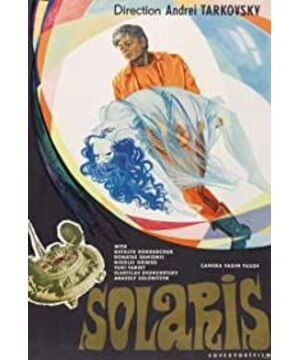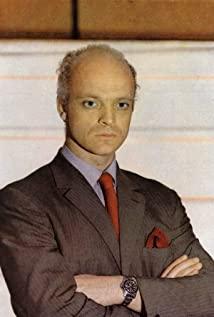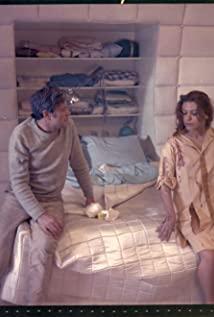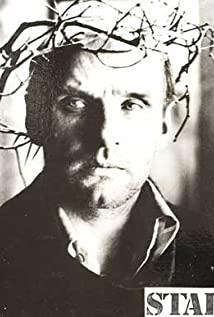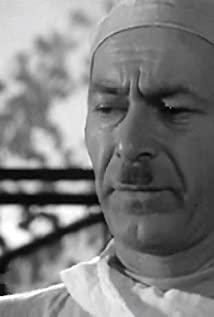After watching "Flying to Space" directed by Tarkovsky, I was "thinking about it and tossing and turning" all night. It's hard to forget his ethereal and Zen-like images, and the slowly advancing long shots, such as Dreamy scenes and difficult rhythms, repeatedly dissecting the axis of human nature and philosophy that will drive you crazy.
It felt like I was back in the shadows left by Tolstoy and Dostoevsky when I was a boy... I read it with tears in my eyes while fighting back sleep, counting how many pages there were in this chapter. Endless chatter and sermons, this old bastard Tolstoy can let me go to bed.
I have always had doubts about Russia. I have always felt that the geographical location close to the cold zone has shaped the national character of the Russians. They are cold, rational, serious, and love wars... I always tell you something about life when I seize the opportunity. The truth, the meaning of life. The image of the "great Russian mother" growing and sprouting on the black soil always makes people feel heavy and tired, just like the three thick books of "War and Peace" pressing on people's hearts. But you can't get around it, it's really great.
Just like the film "Flying to Space", although I didn't understand about half of the plot the first time I watched it, the film contained so much connotation in less than three hours.
Andrei Tarkovsky was one of the most influential directors of the 20th century, the leader of Soviet films, and was a master of coffee at that time with world-renowned directors such as Bergman and Fellini. , made only nine films, and established its place in film history. "Fly to Space" was filmed in the 1970s when the United States and the Soviet Union competed for hegemony and competed with each other to explore space. It can be said to be a momentary battle with the contemporary American director Kubrick's "2001 Space Odyssey" The representative work is very worth seeing.
The first half of the movie's style is hard sci-fi, especially hard. In the middle part, I began to analyze human nature, using the question in "Faust" to make assumptions: If you face the devil (it can also be said to be the world of Sonaris in the film), you can get immortality, what will happen?
Life becomes a perpetually bulging lump that can no longer return to its own void?
You watch your life go back and forth, only you are nailed to the cross forever and cannot be reborn, and become a vampire. That is the most vicious curse.
So, in the movie, when the hero's dead lover died again and again because of the power of the Sonaris world, I almost jumped in fright. The movie style turned into a horror movie. Kind of a psychological thriller.
But in the second half, I saw a magic-style scene. In the black and white picture of the memory narrative, a face appeared in the air, as if calling from another plane. Very incredible.
What is even more remarkable is the kind of beauty in real life, natural beauty, presented in the movie. Just like the picture about aquatic plants at the beginning of the movie, it is full of artistic conception. Possibly one of the most iconic scenes in film history. It actually reminded me of the words in "The Book of Songs", "The variegated vegetables will flow from left to right", so it is natural to "think about it, toss and turn".
The preciousness of this film is that it made me realize how far away I am from nature and the real world as a modern city dweller (of course it is only a small third-tier place), having lived in steel and concrete for half my life So alienated, it's no wonder I always feel nervous and anxious and nervous. The most common plant I see every day is the two rows of gray-faced trees on the way to work, and I can't even tell if it's an elm or a poplar.
But reading taught me that in ancient China, life was not like this. Ancient people would feel that knowing animals and plants is something to be proud of. There are many famous scholars who wrote books about it. Just like Xu Ding in the Qing Dynasty once wrote a book "Mao Poems Famous Things and Pictures", which specialized in the study of vegetation, birds, animals, insects and fish in the "Book of Songs".
And in Chinese classical literature, the most magnificent period of this literary tradition of love between plants and trees is naturally the dynasty of poetry: the Tang Dynasty.
In "The Legend of the Demon Cat" directed by Chen Kaige, Li Bai, who was so drunk, was staggered from the restaurant to Daming Palace, where he used his literary talents to help Tang Xuanzong and Yang Guifei's entertainment life. To add to the fun. He is also very good at selling things, and asked the emperor's eunuch chief Gao Lishi to wear boots for him, and the emperor's eldest brother-in-law, the prime minister, Yang Guozhong, to polish ink for him. To say that Tang Xuanzong was also very elegant, he readily agreed. As a result, Li Taibai wrote the best Yuefu poems in Chinese history: "Qingping Diao", among which the first is the most famous.
Clouds think of clothes and flowers think of faces,
The spring breeze blows on the threshold of Revlon.
If it weren't for the group of jade mountains to see you,
I will meet Yaotai under the moon.
In this poem, the first sentence is the best. There are two explanations in the commentary on poetry and words of the past dynasties:
One is that when you see clouds, you think of Yang Yuhuan's clothes, and when you see peony flowers, you think of Yang Yuhuan's moon-like appearance. Another explanation is that Yang Yuhuan's clothes are as immortal as the clouds in the sky, and Yang Yuhuan's appearance is like the peony flower that is the head of the group. The poet deliberately used the inverted syntax to create the effect of interweaving and perversion in structure, which makes people feel reassuring and associative when reading.
In addition to Li Bai's "Qing Ping Le", Du Fu's "Ascension" has the emotion of "Boundless falling trees and Xiaoxiao, endless Yangtze River rolling in", Wang Wei borrowed "red beans to grow the southern country, spring to send a few branches" to describe the feelings of "Acacia"... It can be said that tens of thousands of Tang poems are the display of the literati living in the nature of flowers, grass and trees at that time.
Compared with the various spiritual confusions and pressures of our modern people, perhaps taking time to immerse ourselves in the long river of Chinese civilization spirit of Tang poetry and nature will be a good relief and enjoyment.
In the end, Andrei Tarkovsky was a great director who pioneered a new concept to let audiences know that Hollywood movies are not the only answer to movies, and entertainment is not the only function of movies. "Fly to Space" is definitely worth watching.
View more about Solaris reviews


